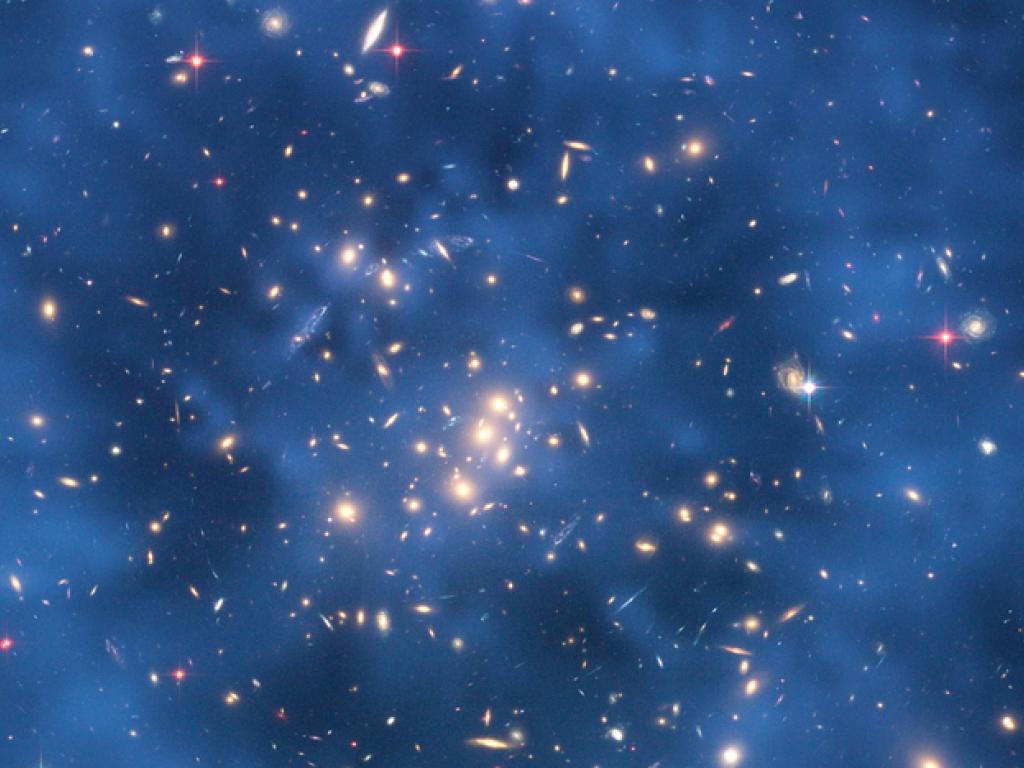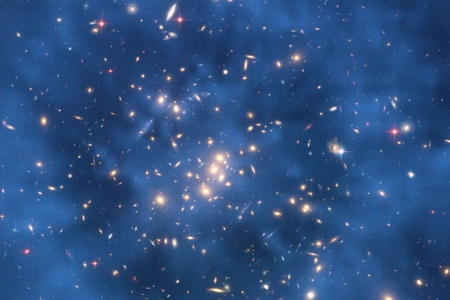Conference to investigate universe's dark side


Image taken from the Hubble Space Telescope indicating that a huge ring of dark matter likely exists surrounding the centre of CL0024+17 that has no normal matter counterpart.
Over 60 participants – some from as far afield as Brazil, the Czech Republic, Russia and Norway – will gather on upper campus from 28 November to 2 December for the Beyond Concordance Model II conference.
The conference is being hosted by UCT’s Cosmology and Gravity Group and is the second in the series on topics related to the dark side of the universe.
One of the organisers, Professor Peter Dunsby of UCT’s Astrophysics, Cosmology and Gravity Centre, explains: “It’s a gathering of international experts to discuss the shortcomings of the standard cosmological model, the so-called concordance model.
“UCT has several international experts working on inhomogeneous cosmology, dark energy and modified gravity, which are important areas linked to the nature of the dark side of the universe.”
Topics under discussion will include dark energy and dark matter, simulations of galaxies, clusters and the universe, and modified gravity.
The scope of the conference is somewhat smaller than the Dark Side of the Universe meeting held in 2014 and organised by the same group and the Texas Symposium on Relativistic Astrophysics, which will be hosted in Cape Town next year.
“Instead, this is a focused workshop by top researchers aimed at building new research connections and opportunities for our graduate students,” Dunsby added.
The format of the meetings will encourage discussion and interaction in a relaxed atmosphere. A number of National Astrophysics and Space Science Programme (NASSP) graduates will also present their work and will be expected to interact with senior scientists for career opportunities.
Several top Portuguese and Spanish researchers will attend; the Iberian focus a result of a bilateral research grant between South Africa and Spain, which was initiated some 10 years ago. The Department of Mathematics and Applied Mathematics also recently appointed Spanish researcher Dr Álvaro de la Cruz-Dombriz as a faculty lecturer to the UCT Cosmology and Gravity Group.
Dunsby says it is hoped that the conference will become a bi-annual event.
“This is a major meeting, bringing many leading experts to UCT and it provides fantastic access and opportunity for our graduate students to top researchers.”
The National Institute for Theoretical Physics has funded the conference with a particular focus on supporting staff and students from disadvantaged backgrounds.
Story Helen Swingler. Photo www.nasa.gov.
